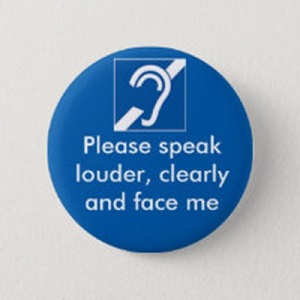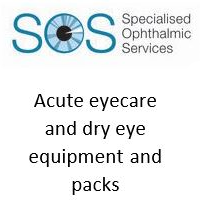Hearing Loss at Work
Visualise Training and Consultancy takes a look at the challenges deaf employees and those with hearing loss face in the workplace.
“I’m struggling to hear at work”
The challenges
Losing your hearing is scary, disconcerting and challenging and having to adapt the way you do things and learn new skills such as lip-reading can be exhausting.
Employment concerns
 Perhaps one of the most difficult aspects of hearing loss is the uncertainty around employment. It can be hard to tell colleagues about your hearing difficulties which in turn can lead to increased anxiety and stress. You may struggle with the strain of listening and increased concentration needed to understand speech, along with distracting tinnitus (ringing, buzzing, or whooshing in the ears).
Perhaps one of the most difficult aspects of hearing loss is the uncertainty around employment. It can be hard to tell colleagues about your hearing difficulties which in turn can lead to increased anxiety and stress. You may struggle with the strain of listening and increased concentration needed to understand speech, along with distracting tinnitus (ringing, buzzing, or whooshing in the ears).
You may also be afraid to tell your manager in case they think you can no longer carry out your daily tasks as efficiently as you used to, leading to a fear of unemployment.
Common factors and feelings
Let’s think about the common factors associated with deafness and hearing loss, and how experiencing these may make you feel:
• Inadequate lighting for lip-reading – you may not communicate as well if you cannot see people’s faces
• People approaching from behind and startling you
• Headaches due to the extra concentration involved
• Colleagues have mentioned you have not heard them more frequently
• Being unable to hear people from a distance
• Concern about hearing levels dropping further
• Missing contributions during team meetings and when in groups
• Struggling to hear clearly when background noise is present
• Increased possibility of ear infections, eczema and/or psoriasis
• Pain around the ear area meaning a headset cannot be used for telephony
• When using telephony, you struggle to hear clearly as you cannot lip-read and see the speaker’s face
• Colleagues not understanding and making jokes at your expense can lead to a loss of confidence and low self-esteem
Help is available
Experiencing just one of these symptoms may make you feel worried, isolated, excluded, or anxious. If not checked, in time these feelings may escalate and affect your work and private life. It is vital to know that help is available as The Equality Act 2010 protects you against disability discrimination and your employer must make reasonable adjustments.
Transforming lives

Visualise Training and Consultancy provides holistic workplace assessments which identify your needs and make recommendations in a detailed and solutions-focused report for you and your employer.
These include assistive technology, equipment, and other reasonable adjustments that can help make your working life easier, more enjoyable and productive.
Overcoming the hurdles
Let’s take a look at the five most familiar challenges that may occur in the workplace for people who have hearing loss, along with practical solutions.
1. “I cannot hear clearly when using telephony”
We all lip-read to a degree but when a hearing loss is present, we rely on this skill even more so. When using telephony (mobile or desk phone, or virtual team meetings via the PC), we cannot lip-read. This is a common issue that can be tackled in several possible ways. We can:
• Change the headset if hearing aids are not worn.
• Use direct wireless streaming to the hearing aids (subject to compatibility, but usually possible).
• Assist with background noise by implementing assistive listening devices.
• Adjust desk position or working environment.
• Use virtual communication options such as Microsoft Teams, Google Meet, Zoom etc.
2. “I am finding it difficult to hear during team meetings or group situations…”
Reasonable adjustments can be put in place that will ensure meetings become more accessible and enjoyable. We can also suggest where best to sit in meetings and the most beneficial layout.
If hearing aids are worn, technology which helps the user to hear more clearly at distance in one-to-one and group situations can be implemented.
3. “I suffer from headaches and am tired due to the extra concentration needed when trying to understand speech…”
Regular breaks between calls and meetings so that listening fatigue does not occur can be recommended along with a range of other adjustments that will assist with this.
4. “My colleagues don’t know how to support me in the best way”
Remember your colleagues may not have ever worked with someone with tinnitus, hearing loss or deafness, so be loud and proud, tell them what you need and how best to communicate with you. They may also benefit from deaf awareness training to understand how best to support you with the challenges you face.
5. “I have ear infections, tinnitus and eczema in my ears and cannot wear headsets…”
This is a common occurrence so we may be able to recommend a different compatible headset or use a desk microphone and loudspeaker from the phone/PC. An external speaker can also be attached to most PC telephony.
These challenges can cause elevated levels of discomfort, stress, and anxiety. However, it is important to remember that help is available and that communication is often the key to starting the journey to positivity and a sense of equilibrium.
Don’t suffer in silence, because for every problem there is almost always a workable solution.
Taking the first step
Visualise’s holistic workplace assessments can help ensure that you successfully develop your career while feeling included and valued as part of the team.
Hearing loss, deafness and tinnitus needn’t mean job loss, so to find out more, visit https://visualisetrainingandconsultancy.com/workplace-assessments/hearing-loss/ and speak to your line manager and HR department about referring you for a workplace assessment
Read more about
The Effects of Tinnitus in the Workplace
Watch a new video now below
To assist organisations with this, Visualise Training and Consultancy has launched a video with subtitles to highlight the barriers and potential solutions.
Here’s the link: https://youtu.be/eqYK0DSCHSY
























